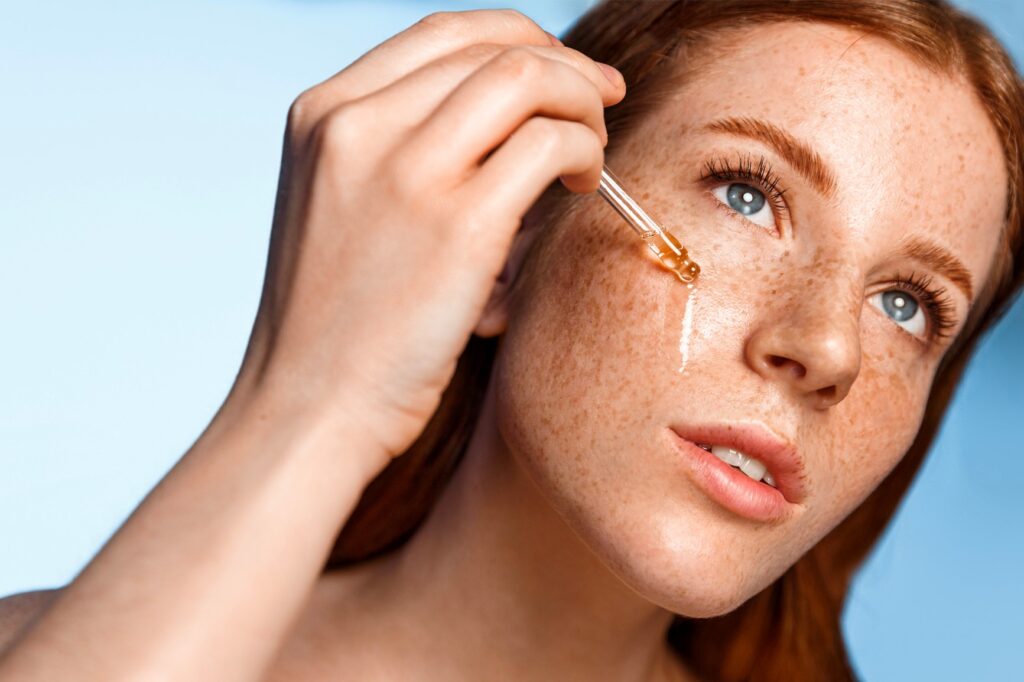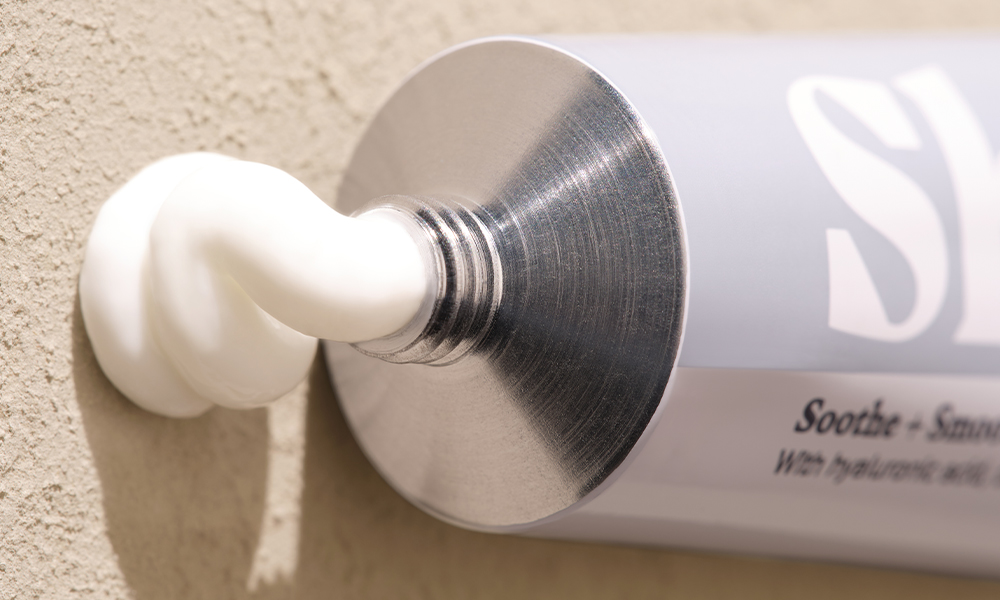Ask A Dermatologist: Skincare Tips For Winter

Link to share article here:
Skincare and Acids Guide: AHAs, BHAs and your routine
There’s a myriad of uses for acids that give you glowy skin as part of your daily routine. The trick is finding the right acid for your skin type (or goal) and using it in the right concentration and combination and at the right time of day.
Granted, there are quite a few variables here so we’ve pulled together a simple guide to understanding more about AHAs, BHAs (alpha and beta hydroxy acids), other useful acids and how they can best work for you.
The definition and difference between AHAs and BHAs
AHAs are water-soluble acids derived from plant sugars. AHAs are useful for treating skin pigmentation and making skin smoother to the touch. One of the most common AHAs used in skincare is glycolic acid.
BHAs are oil-soluble. That means they can delve deeper into the pores, clearing out excess sebum and dead skin cells. A commonly used BHA is salicylic acid.
Both AHAs and BHAs are exfoliating. As a general rule, AHAs are often recommended for pigmentation and skin ageing. BHAs for acne-related inflammation and excessively oily skin.
Why use exfoliating acids?
AHAs and BHAs can be found in cleansers, moisturisers, serums and more. Used in the right way, they can both deliver clearer, brighter, smoother skin.
Acids work to exfoliate the skin by breaking the bonds between cells to clear away debris and reveal a brighter complexion.
Physical vs. Chemical exfoliators
Unlike physical exfoliators that contain microparticles that ‘polish’ the skin, acids are chemical exfoliators that have skin-dissolving properties to slough off dead skin cells and reveal brighter skin beneath.
Exfoliating with acids
This very much depends on your skin type. Be aware of product overload and maintain a healthy skin barrier. Don’t overuse acids daily. Think skinimalism – if in doubt of irritation, take it out.
The one exception to this general rule is using BHAs on skin susceptible to breakouts. Our Head of Medical, Dr Jason Thomson explains: “Oily, acne-prone skin types can often benefit from daily exfoliation with salicylic acid.”
Acids to know
Here’s a quick non-exhaustive but highly useful at-a-glance guide to the most popular acids used in skincare:
Glycolic acid
This is the most common type of AHA that exfoliates the skin. It can help reduce fine lines, hyperpigmentation and an uneven skin tone. It’s good for all skin types – those with dull skin particularly.
Hyaluronic acid
The ‘acid’ in the name can be misleading here as it doesn’t strip your skin – hyaluronic acid is actually nourishing and hydrating. It draws in and holds onto moisture from the surrounding environment for a plumper, more hydrated complexion. It’s great for dry, dehydrated skin and an oil-free option for acne-prone skin.
Salicylic acid
A BHA that exfoliates the skin, clears pores and fights breakouts. It’s best for combination, oily or acne-prone skin.
L-Ascorbic acid
Another name for good ol’ vitamin C. It’s a popular antioxidant (think anti-pollution skincare), an anti-inflammatory that can stimulate collagen production, help with UV damage and soothe uneven skin tones. Vitamin C can be exfoliating too – be mindful of mixing it with other AHAs and BHAs in a single application as this can irritate the skin. Great for all skin types.
Mandelic acid
A lesser-known AHA that has antibacterial properties, strengthens collagen and smooths uneven skin tones. Again, it’s suitable for all skin types.
Ingredient combinations including acids
Active ingredients and acids can work in harmony or result in irritation. This is why layering single-ingredient skincare can be complicated. Using actives that are blended specifically by dermatologists for your skin – and building up tolerance slowly (see microdosing) is the best way to do it.
Skin on the sensitive side? First, understand the results you want and choose the right acid accordingly. Don’t mix AHAs and BHAs in the same time frame. Save one for morning and one for evening or apply on alternate days to reduce the chances of irritation.
Medical facts checked by Consultant Dermatologist, Dr Ben Esdaile
New to Skin + Me? Click here to start your healthier, happier skin consultation.
On your Skin + Me journey? Learn more about our Invite a Friend Charity initiative here



